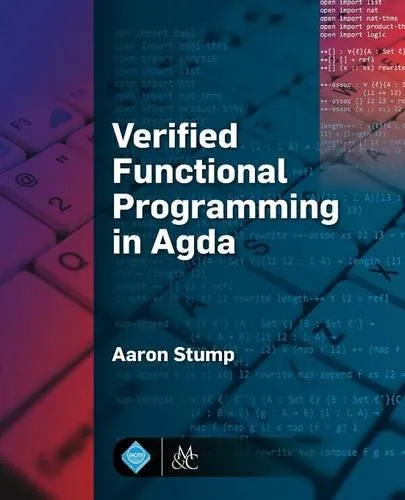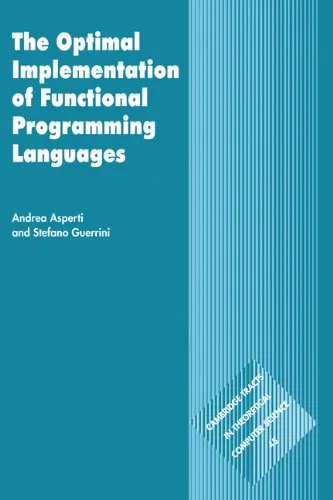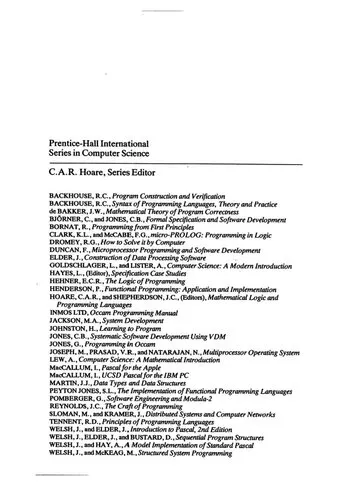Functional programming languages for verification tools.A comparison of Standard ML and Haskell
4.0
بر اساس نظر کاربران

شما میتونید سوالاتتون در باره کتاب رو از هوش مصنوعیش بعد از ورود بپرسید
هر دانلود یا پرسش از هوش مصنوعی 2 امتیاز لازم دارد، برای بدست آوردن امتیاز رایگان، به صفحه ی راهنمای امتیازات سر بزنید و یک سری کار ارزشمند انجام بدینکتاب های مرتبط:
مقدمهای بر کتاب
کتاب "Functional programming languages for verification tools: A comparison of Standard ML and Haskell" به بررسی و مقایسه اصولی دو زبان برنامهنویسی کاربردی، Standard ML و Haskell، در زمینه ابزاری برای تأیید و اطمینان از صحت نرمافزار میپردازد. این کتاب با تشریح ویژگیهای این دو زبان و مقایسه تطبیقی آنها، سعی بر ارائه درکی عمیق از قدرت زبانهای برنامهنویسی کاربردی در ابزارهای verification دارد.
خلاصه جامع کتاب
کتاب در ابتدا به معرفی زبانهای برنامهنویسی کاربردی پرداخته و تفاوتهای اصلی آنها با زبانهای imperative را بررسی میکند. سپس دو زبان Standard ML و Haskell با جزئیات مورد تجزیه و تحلیل قرار گرفته و ویژگیهای کلیدی هر یک در فرایندهای verification شرح داده میشود. در ادامه ابزارها و تکنیکهای مختلفی که با استفاده از این زبانها توسعه یافتهاند، معرفی میگردد. این کتاب به ویژه برای کسانی که به توسعه ابزارهای verification برای سیستمهای پیچیده علاقهمندند، مناسب است.
نکات کلیدی
- درک عمیق از قدرت و مزایای زبانهای برنامهنویسی کاربردی در ابزارهای verification.
- مقایسه تطبیقی و مفصل زبانهای Standard ML و Haskell از نظر قابلیتها و کاربردها.
- بررسی موارد کاربرد زبانهای برنامهنویسی کاربردی در امنیت و اطمینان از صحت نرمافزار.
- تشریح معماری و عناصر طراحی ابزارهای verification.
نقل قولهای مشهور از کتاب
"زبانهای برنامهنویسی کاربردی به عنوان ابزاری قدرتمند برای طراحی نرمافزارهای مقاوم و قابل اطمینان، نقش بسیار مهمی را در دنیای امروز ایفا میکنند."
"انتخاب زبان برنامهنویسی درست میتواند چالشهای hindering verification را به فرصتهایی قابل مدیریت تبدیل کند."
اهمیت این کتاب
با پیچیدهتر شدن روزافزون سیستمهای نرمافزاری، نیاز به ابزارهای مطمئن برای verification بیش از پیش حس میشود. این کتاب با ارائه تصویری کامل از قابلیتهای زبانهای برنامهنویسی کاربردی، به توسعهدهندگان و محققان کمک میکند تا بهترین ابزارها را برای اطمینان از صحت و امنیت نرمافزارهای خود انتخاب و توسعه دهند. در واقع، این کتاب یک منبع ارزشمند برای کسانی است که به دنبال راهکارهایی نوین و موثر در حوزه verification هستند.
Introduction to Functional Programming Languages for Verification Tools: A Comparison of Standard ML and Haskell
Welcome to the comprehensive exploration of functional programming languages through the lens of verification tools. This book embarks on a comparative journey between Standard ML and Haskell, two prominent languages in functional programming. As we delve deep into their constructs, capabilities, and applications in verification tools, this introduction sets the stage for an enlightening journey into the realm of functional programming.
Detailed Summary of the Book
The world of programming languages is vast, with various paradigms catering to different needs and application domains. Among these paradigms, functional programming stands out for its emphasis on immutability, mathematical functions, and elegant handling of complex software systems. In "Functional Programming Languages for Verification Tools," we focus on Standard ML and Haskell, two stalwarts in the field. This book provides an in-depth comparison of these languages, analyzing their syntax, semantics, and suitability for building verification tools.
Standard ML, known for its robust type system and pattern matching capabilities, offers a strong foundation for developing verification tools. Haskell, on the other hand, with its lazy evaluation and monadic structures, brings a different approach to managing side effects and computation. In this book, we dissect these languages through real-world examples, case studies, and pragmatic advice, guiding the reader to comprehend their utilization in verification environments.
Key Takeaways
By the end of this book, readers will gain insights into:
- The core features of Standard ML and Haskell that make them ideal for functional programming.
- How each language can be leveraged for verification tasks effectively.
- Practical differences in the approach to functional programming between Standard ML and Haskell.
- The advantages and limitations of both languages concerning verification tools.
- Insights into the types of verification problems that each language handles efficiently.
Famous Quotes from the Book
"Functional programming is not just a coding strategy; it's a way of thinking that leads to robust and verifiable software systems."
"In the realm of verification tools, the choice between Standard ML and Haskell often comes down to personal preference and specific application needs."
Why This Book Matters
In an age where software reliability and correctness are paramount, the need for verification tools has never been greater. Functional programming languages such as Standard ML and Haskell are uniquely positioned to tackle the challenges of software verification due to their emphasis on purity and mathematical rigor. This book matters because it bridges the gap between theoretical aspects of functional programming and practical needs of creating verification tools.
For software engineers, system verifiers, and computer scientists, understanding the nuances of these languages can significantly elevate their ability to design and implement effective verification tools. This guide not only introduces readers to the syntax and semantics of Standard ML and Haskell but also equips them with the understanding needed to make informed decisions when choosing the right tool for verification tasks. Thus, it serves as both an educational resource and a reference guide for professionals facing the intricate challenges of software verification.
دانلود رایگان مستقیم
شما میتونید سوالاتتون در باره کتاب رو از هوش مصنوعیش بعد از ورود بپرسید
دسترسی به کتابها از طریق پلتفرمهای قانونی و کتابخانههای عمومی نه تنها از حقوق نویسندگان و ناشران حمایت میکند، بلکه به پایداری فرهنگ کتابخوانی نیز کمک میرساند. پیش از دانلود، لحظهای به بررسی این گزینهها فکر کنید.
این کتاب رو در پلتفرم های دیگه ببینید
WorldCat به شما کمک میکنه تا کتاب ها رو در کتابخانه های سراسر دنیا پیدا کنید
امتیازها، نظرات تخصصی و صحبت ها درباره کتاب را در Goodreads ببینید
کتابهای کمیاب یا دست دوم را در AbeBooks پیدا کنید و بخرید
1511
بازدید4.0
امتیاز0
نظر98%
رضایتنظرات:
4.0
بر اساس 0 نظر کاربران
Questions & Answers
Ask questions about this book or help others by answering
No questions yet. Be the first to ask!
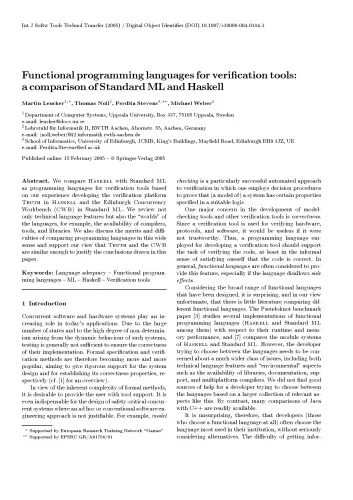

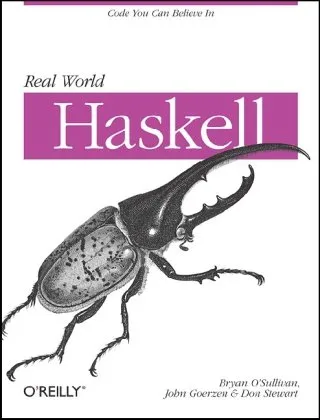
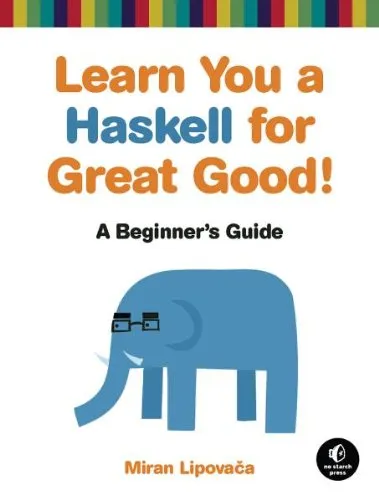
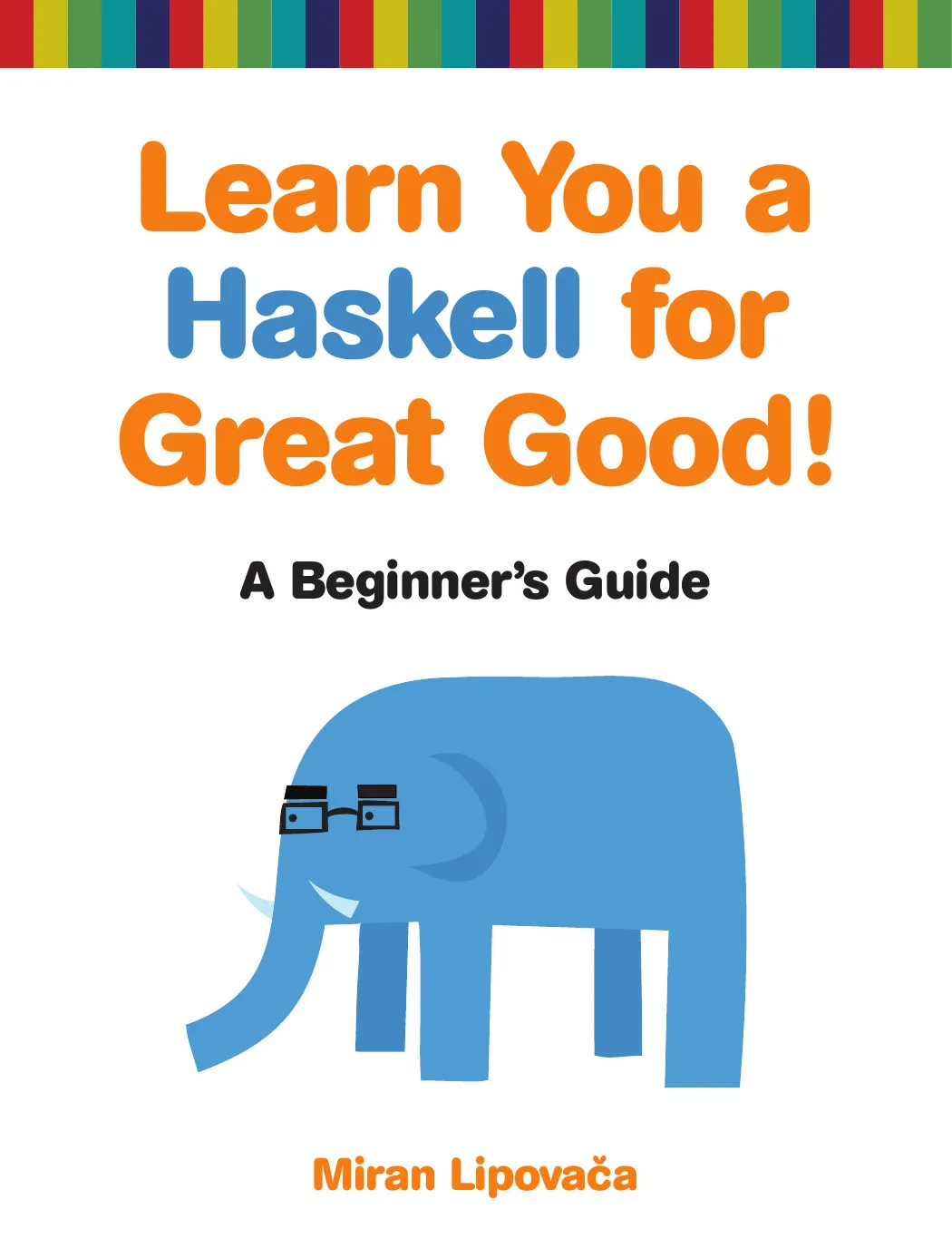

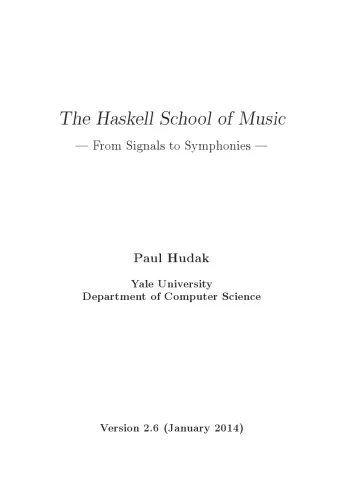
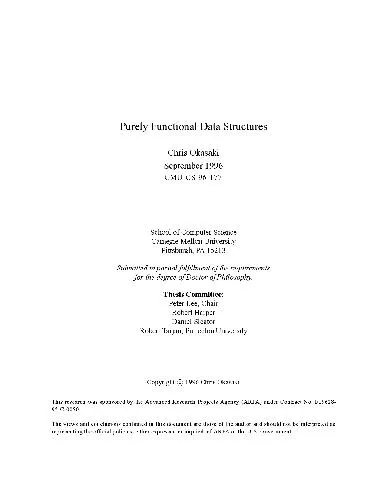
![[ An Introduction to Functional Programming Systems Using Haskell[ AN INTRODUCTION TO FUNCTIONAL PROGRAMMING SYSTEMS USING HASKELL ] By Davie, Antony J. T. ( Author )Jun-18-1992 Paperback](https://s3.refhub.ir/images/thumb/An_Introduction_to_Functional_Programming_Sys_34929.webp)
